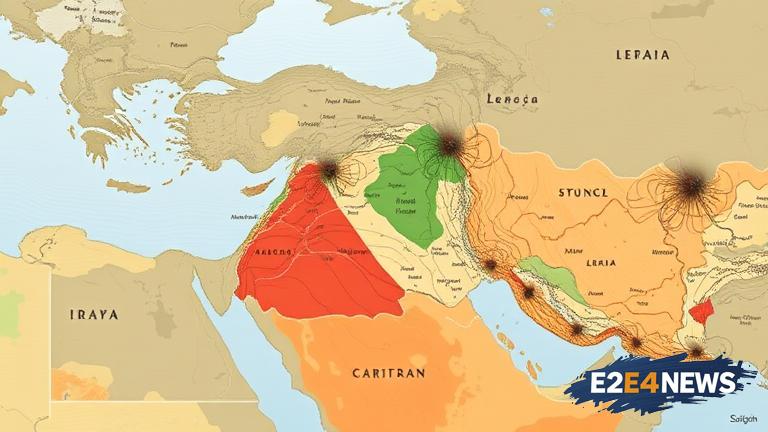The Middle East has long been a hotbed of geopolitical activity, with various nations vying for influence and power. Recently, tensions have escalated, with several countries engaging in a delicate dance of diplomacy and aggression. At the heart of the issue is the ongoing struggle for dominance between regional heavyweights, including Saudi Arabia, Iran, and Turkey. Each of these nations has its own unique interests and motivations, which often put them at odds with one another. Saudi Arabia, for example, has been seeking to assert its influence in the region, particularly in the wake of the Arab Spring uprisings. Iran, on the other hand, has been working to expand its own reach, often through proxy forces and militias. Turkey, meanwhile, has been attempting to position itself as a key player in the region, leveraging its strategic location and historical ties to the Middle East. The situation is further complicated by the involvement of external powers, including the United States, Russia, and China. These nations have their own interests and agendas in the region, which can sometimes align with, and sometimes contradict, those of the local players. The US, for instance, has been seeking to contain Iranian influence, while Russia has been working to strengthen its own ties with regional nations. China, meanwhile, has been investing heavily in the region, particularly in terms of infrastructure and energy projects. As tensions continue to rise, there are concerns about the potential for conflict, particularly in hotspots such as Yemen, Syria, and Libya. The humanitarian situation in these countries is already dire, with millions of people displaced or in need of aid. The international community has been calling for calm and restraint, but the situation remains volatile. In recent weeks, there have been reports of increased military activity, including drone strikes and missile launches. The economic implications of the tensions are also significant, with the region’s oil supplies and trade routes potentially at risk. The Middle East is home to some of the world’s most important energy reserves, and any disruption to production or transportation could have far-reaching consequences. Despite the challenges, there are still opportunities for diplomacy and cooperation. Several regional nations have been engaging in talks, aimed at reducing tensions and finding common ground. The UAE and Saudi Arabia, for example, have been working to strengthen their ties, while Iran and Iraq have been discussing ways to improve their own relations. The international community has also been playing a role, with organizations such as the UN and the EU working to facilitate dialogue and provide humanitarian support. As the situation continues to evolve, it is clear that the Middle East will remain a key focus of global attention in the coming months and years. The region’s complex web of alliances and rivalries will require careful navigation, and the potential for conflict will need to be carefully managed. Ultimately, a lasting resolution to the tensions will depend on the ability of regional nations to find common ground and work towards a more stable and peaceful future. The Middle East is a region of immense cultural and historical significance, and its people deserve a brighter future, free from the shadows of conflict and instability. By working together, and engaging in open and honest dialogue, it is possible to build a more prosperous and secure region, where all nations can thrive. The path ahead will not be easy, but with determination and cooperation, it is possible to create a better future for the Middle East and its people.
